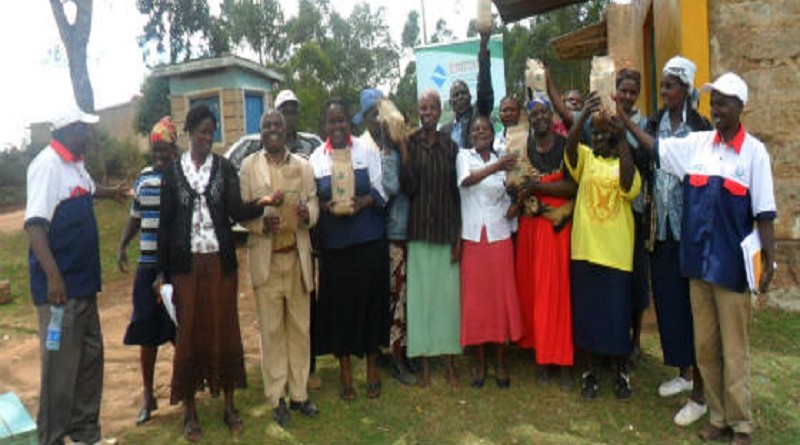Classic Foods in Kenya has secured a 50,000 Euros investment from Hivos
Classic Foods Limited participated in the Green Pioneer Accelerator program at Growth Africa in Nairobi. The company produces, processes and distributes a range of food products such as milk, yoghurt, flour, honey, tomato sauce, juices and nutritious flour products. Classic Foods is addressing the problem of improving food security by integrating agricultural production and supply chains across smallholder farmers in Kenya. Simultaneously, the company helps mitigate the negative effect of climate change and soil nourishment, says Classic Foods Founder Kariuki Wachira.
Congratulations on the new funding! What milestones do you want to reach with this?
“We intend to use the winnings towards automation of our fruit juice processing line so as to increase capacity and shelf life of our fruit juice. This will in return enhance off-take of more fruits from over 20,000 smallholder farmers we have been supporting through farming best practices. This winning will go a long way in supporting farmers whom we have been encouraging to plant fruits to climb up the economic ladder towards commercial scale.”
What’s the story of how Classic Foods started and progressed to where you are now?
“My wife and I started the company in 2007. We aimed to help farmers have access to market and overcome effects of glut and post-harvest losses. I experienced the same while growing up in a rural set-up.
Our initial milk business involved buying and selling milk in-bulk quantities: buying milk from farmers and selling to milk processors. This meant that we took the risk of cautioning the farmers. Eventually this challenge made us take the bold step to be the processor we are today: the company was transformed to a milk processor in 2009 with capital contributions of over USD 3 million.
Due to erratic supply of milk, we also felt the need to support the farmers with quality animal feeds. This path led us to engage in flour milling and animal feeds. As we continued to train farmers to increase output, we realized the opportunity to process fruits produced by the same farmers. Expanding the business to fruit juice processing, honey, tomato sauce processing, maize flour milling and animal feeds was a natural path to exploit the business synergies in the sector. Having a wide range of products also mitigates the risks associated with only one product.
Initially my wife and I started the company together with joint contribution and management of the start-up. Currently, my role is mainly strategic planning, assets management, operations and implementation of business expansion strategies. Stella handles human resources, accounting and sales activities. Currently we have a team of 30 staff engaged in various positions.”

What were key challenges you experienced?
“Over time, we started realizing shortage and erratic supplies of raw materials due to negative effects of climate change required solid intervention to safeguard constant supply of these raw materials. We experienced adverse weather conditions and environmental risks such as prolonged drought, floods and storm. Other challenges we faced were unfair competition and counterfeits, high costs of production, public health dimensions and quality risks, and also some inadequate government policies.
We took a number of mitigating actions. Sourcing of raw materials from multiple, grass-roots suppliers; targeting an un-served market and utilizing our existing supply chain to penetrate market for new products; robust quality and internal controls processes; assisting farmers into adopting farming methods, which incorporates resilience mechanisms; and using the synergic offering between famers and us, while building long-term relationships with the multiple smallholder farmers.”
What did you get out of the Green Pioneer Accelerator program?
“The program provided lots of insight on marketing strategies, defining marketing channels and mechanism of converting potential customers to actual sales.”
Why is your company interesting for investors?
“We have grown past the start-up stage. Our focus is now on process improvement, efficiencies and automation. Moreover we have started the process of ISO certification, which is heavily capital-intensified mainly due to investments towards process improvement. In the near future we intend to enter the export market, and tap into the unserved market and provide unlimited market access for our farmers’ groups.
Our product range is primary food items, which do not pose significant marketing challenges. The main challenge is mainly in sourcing of the raw materials, which is the basis for our climate change training initiatives. They entail training smallholder farmers on farming best practices with more focus on use of organic inputs for soil nourishment as opposed to chemicals.
We train and assist farmers climb up the economic ladder. As a result they access alternative means of generating income instead of cutting trees and burning charcoal. We encourage planting of fruit trees, which generates direct income to farmers. We assist on management of post-harvest losses by guaranteed off-taking of the farm produce, mainly the fruits, cereals and milk.
We have made remarkable impact. Over 20,000 are benefiting from increased output, access to the market and increased income with hundreds of people getting employed directly and indirectly in the value chain.”
What are your vision and plans for the future?
“Our vision is to support over 50,000 smallholder farmers climb up the economic ladder through application of farming best practices, and help mitigate the negative effect of climate change and soil nourishment. This will help Classic Foods capture at least 1% market share on all our products, while providing ready market for the farmers produce, and reduce at least 70% of the post-harvest losses.”
Anything else you’d like to add?
“Companies should not only focus on profitability and cheap raw materials, but they should also focus on acquiring raw materials from responsible sources where there is no degradation and deforestation. Climate change is a global problem. There is too much effort being done on research, and little being done to correct the negative effects. It is my desire to have as many change agents the world can provide and join hands to this noble course.”
Miguel Heilbron – VC4Africa




